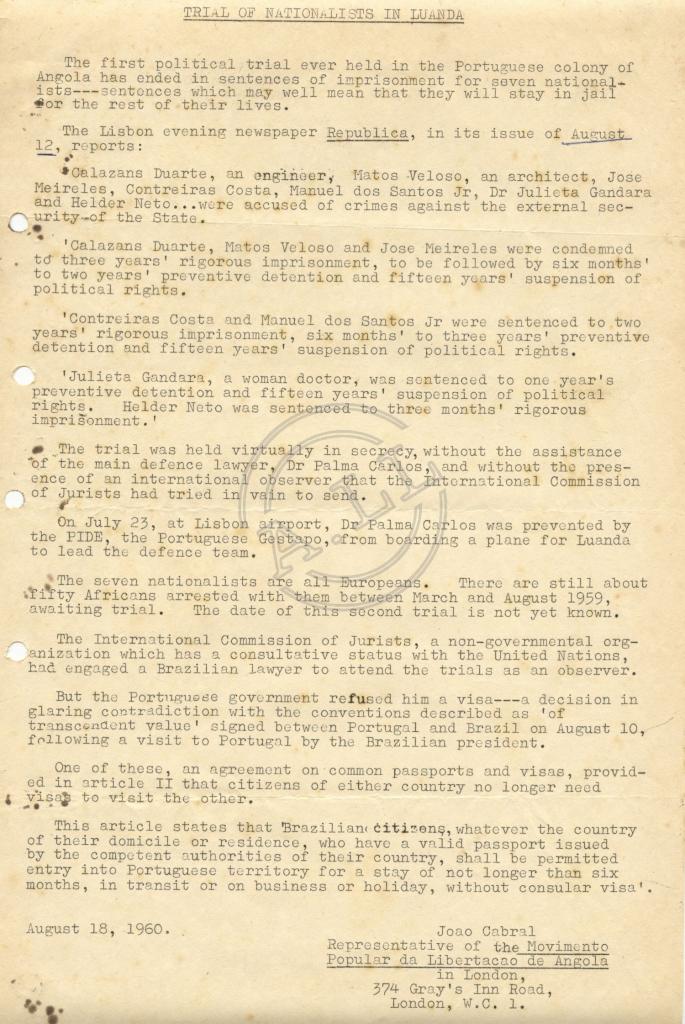TRIAL OF NATIONALISTS IN LUANDA
The first political trial ever held in the Portuguese colony of Angola has ended in sentences of imprisonment for seven nationalists--sentences which may well mean that they will stay in all for the rest of their lives.
The Lisbon evening newspaper Republica, in its issue of August 12, reports:
Calazans Duarte, and engineer, Matos-Veloso, an architect, Jose Meireles, Contreiras Costa, Manuel dos Santos Jr, Dr Julieta Gandra and Helder Neto... were accused of crimes against the external security of the State.
‘Calazans Duarte, Matos Veloso and Jose Meireles were condemned to three years’ rigorous imprisonment, to be followed by six months’ to to years’ preventive detention and fifteen years’ suspension of political rights.
‘Contreiras Costa and Manuel dos Santos Jr were sentenced to two years’ rigorous imprisonment, six months’ to three years’ preventive detention and fifteen years’ suspension of political rights.
‘Julieta Gandara, a woman doctor, was sentenced to one year’s preventive detention and fifteen years’ suspension of political rights. Helder Neto was sentenced to three months’ rigorous imprisonment.’
The trial was held virtually in secrecy, without the assistance of the main defence lawyer, Dr Palma Carlos, and without the presence of an international observer that the International Commission of Jurists had tried in vain to send.
On July 23, at Lisbon airport, Dr Palma Carlos was prevented by the PIDE, the Portuguese Gestapo, from boarding a plane for Luanda to load the defence team.
The seven nationalists are all Europeans. There are still about fifty Africans arrested with them between March and August 1959, awaiting trial. The date of this second trial is not yet known.
The International Commission of Jurists, a non-governmental organization which has a consultative status with the United Nations, had engaged a Brazilian lawyer to attend the trials as an observer.
But the Portuguese government refused him a visa--a decision in glaring contradiction with the conventions described as ‘of transparent value’ signed between Portugal and Brazil on August 10, following a visit to Portugal by the Brazilian president.
One of these, agreement on common passports and visas, providing in article II that citizens of either country no longer need visas to visit the other.
This article states that Brazilian citizens, whatever the country of their domicile or residence, who have a valid passport issued by the competent authorities of their country, shall be permitted entry into Portuguese territory for a stay of no longer than six months, in transit or on business or holiday, without consular visa’.
August 18, 1960.
Joao Cabral
Representative of the Movimento
Popular de Libertação de Angola
In London,
374 Gray’s Inn Road,
London, W.C.I.
Artigo de João Cabral sobre o Processo dos nacionalistas angolanos (Processo dos Cinquenta).
